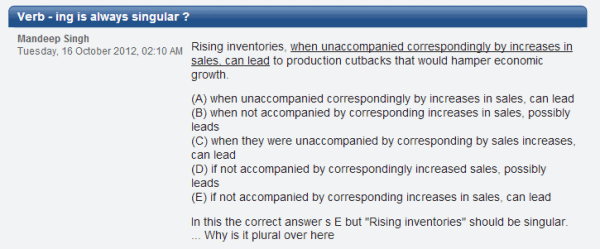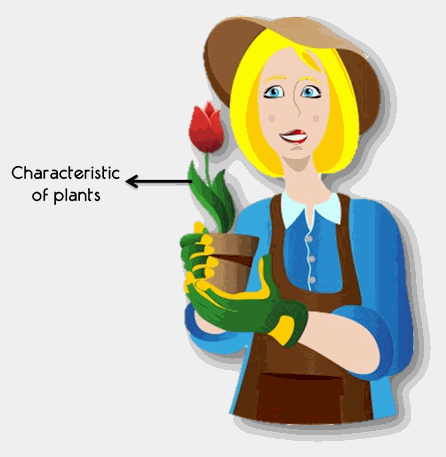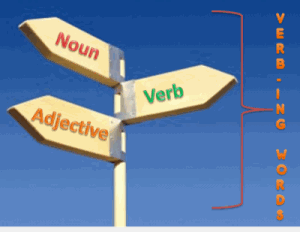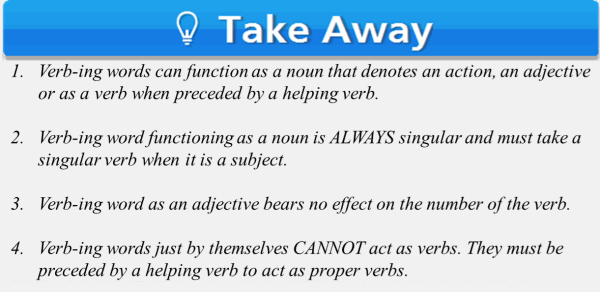VERB-ING WORDS – THREE FUNCTIONS
Hi All,
We are all familiar with the verb-ing words as clause modifiers when they are preceded by a comma or placed in the beginning of the sentence and separated from the main clause by a comma. Following is the overview of various modifications by verb-ing modifier according to its placement:

We have already written very detailed articles on verb-ing modifiers. Here are the links for the same:
usage-of-verb-ing-modifiers-135220.htmlverb-ing-modifiers-part-2-in-our-first-article-on-verb-ing-135567.htmlBut, the function of verb-ing words is not limited to only modifiers. They play various other roles in a sentence. Take a look at the following three sentences. By the way, they are all correct sentences, so don’t worry about correcting them.
1. Growing plants is my hobby.
2. Growing plants in your backyard need more care.
3. I am growing aromatic plants in my garden.
Anyone who aims to score above 700 in GMAT MUST understand the distinctions detailed out in this article.
COSTLY CONFUSION
In all these three sentences, “growing”, the verb-ing word, plays three different roles. In the first sentence, “growing” is a noun, in the second, it’s an adjective, and in the last sentence together with “am”, it is a verb in present continuous tense. Many a times, test takers fail to identify the correct role of the verb-ing word because of the complex structure of sentences in Sentence Correction.
In my experience, students who cannot differentiate between the use of verb-ing word as a noun and as an adjective end up making Subject Verb Number Agreement error. We have addressed over 20 such doubts in our internal forums.

Similarly, if students are unable to differentiate between the use of verb-ing word as an adjective and as a verb, they will toward a grammatical disaster.
Hence, it is necessary to be aware of the various functions of the verb-ing so that our mistakes do not reflect on our score card.
FUNCTION 1- VERB-ING WORD AS A NOUN
Verb-ing words can function as nouns. But these nouns are little different from conventional nouns. The verb-ing words function as those nouns that actually denote an action. So such verb-ing words fall under the category of nouns but unlike conventional nouns, they actually denote an action. These forms of verb-ing words are popularly known as gerunds. Since at
e-gmat, we refrain from using grammatical jargons, we call the gerunds the verb-ing nouns that denote action.

Now let’s study our first example sentence in the light of this explanation.
1.
Growing plants
is my hobby.

In this sentence, “growing” is the verb-ing noun because the word acts a noun and hence is the subject of the clause, but it also denotes an action. “Growing” most certainly does not follow the definition of the conventional noun – a thing, place or person – as it denotes the action of growing. Hence, it is a verb-ing noun.
One other thing to note about verb-ing nouns is that they are ALWAYS singular in number and hence, take singular verb when act as subjects. In our example sentence too, the verb is singular “is” as the subject “growing” is singular.
2.
Marketing baby products in the internet world
requires a cohesive message to be spread through traditional print and social media.
In this sentence, “marketing”, the verb-ing word acts as a noun and forms a big noun phrase “Marketing baby products in the internet world” that is the subject of the sentence. Since “marketing” is the head of this noun phrase and is a verb-ing noun, it takes singular verb “requires”. The number of the nouns entities that follow “marketing” has no effect on the number of the verb “requires”.
Following are the examples of the verb-ing noun in
official questions:
1.
Eating saltwater fish
may significantly
reduce the risk of heart attacks and also aid for sufferers of rheumatoid arthritis and asthma, according to three research studies published in the New England Journal of Medicine. (OGV2#28)
In this sentence, “eating” is a verb-ing noun that makes the subject of this sentence. Now, this sentence uses the verb “may reduce” that actually does not talk much about the number of the subject. But if “may” is removed, then “eating” will take singular verb “reduces”.
2. Many policy experts say that
shifting a portion of health-benefit costs back to the workers not only
helps to control the employer’s costs, but also
helps to limit medical spending by making patients more careful consumers. (OGV2#63)
In this official sentence as well, “shifting”, the verb-ing noun takes singular verb “helps” in the idiom not only X but Y.
FUNCTION 2 – VERB-ING AS AN ADJECTIVE
Another role that a verb-ing word plays is of an adjective. As an adjective, it provides extra information of a particular noun entity. These verb-ing words can be present before or after the noun entity without any comma between the modified noun and the verb-ing adjective.

The verb-ing word in our second example sentence falls in this category.
2.
Growing plants in your backyard
need more care.

In this sentence, “growing” is the adjective that presents a characteristic of the “plants”. What kind of plants need more care? The plants that are growing.
The thing to notice here is that since the verb-ing word acts as an adjective, it does not have bearing on the verb of the sentence. The verb needs to agree in number and make sense with the subject of the sentence. In this case, the subject is “plants” and hence the verb used is plural “need”.
2.
Marketing channels that cost more generally
provide higher returns.
In this sentence, “marketing” is the verb-ing adjective that talks about the characteristic of the channels. The sentence specifically talks about a particular type of channels - “marketing channels”. Since “marketing” is just an adjective or a modifier, the noun “channels” is the subject in this sentence and takes plural verb “provide” because the subject is plural.
Similarly, since “that” refers to the plural “channels”, it also takes plural verb “cost”.
It’s time to review some
official sentences with verb-ing word acting as an adjective:
1.
Declining values for farm equipment and land, the collateral against which farmers borrow to get through the harvest season,
are going to force many lenders to tighten or deny credit this spring. (OGVR2#20)
In this correct official sentence, “declining” is the adjective that presents additional information about the noun “values” The verb-ing word again presents the characteristic of the value. It talks about the values that decreasing. So the subject of the sentence is “values”, a plural noun that takes plural verb “are” which actually falls in the underlined portion.
So if you mistook “declining” for noun instead of adjective, you would probably choose the answer choice that would have “is”. This is the grammatical fiasco we are talking about.
2.
Rising inventories, if not accompanied by corresponding increases in sales,
can lead to production cutbacks that would hamper economic growth.
We have already seen that test takers do get confused in determining the role of “rising” in this one. Clearly, “rising” here talks about a feature of “inventories”. The sentence talks about those inventories that rise. Now here the verb is “can lead” that does not speak anything about the number of the noun. But there are a few answer choices that have the singular verb “leads”. These answer choices have been explained as incorrect as “rising inventories” does not agree in number in with the verb “leads”.
FUNCTION 3 – VERB-ING AS A VERB WITH A HELPING VERB
The function of verb-ing words as verbs is a very popular function. However, there are many who make the mistake of identifying JUST the verb-ing word as the verb. This is not correct.

One thing we must be aware of is that verbs MUST have a tense. But the verb-ing words just by themselves do not have any tense. Can you tell what is the tense of “eating”, “drinking”, or “dancing”. Certainly not.
But you will be able to do so the moment I add some helping verb before these words. Check it for yourself – “is eating”, “was drinking”, “have been dancing”. Right?
So
NEVER consider just the verb-ing word as a verb in a sentence. It’s time to bring our third example sentence here:
3. I
am growing aromatic plants in my garden.
Here, if we just read the word “growing”, we would not be able to tell the tense of this word. It is the helping verb “am” that tells me that the verb “am growing” is in simple present continuous tense. We can never write sentences such as:
1. Joe eating pizza.
2. Julia dancing on the stage.
In these sentences, “eating” and “dancing” CANNOT be termed as verbs because we don’t know the time frame of these continuous actions. But adding a helping verb – is/are/were/was/has been/have been etc. – will not only make the tense of the verb clear but also provide a proper verb to make the structure a proper grammatical sentence.
1. Joe
is eating pizza.
2. Julia
was dancing on the stage.
Following is the instance where an
e-GMAT student rejected a choice because he thought that the verb-ing word was a present continuous tense.

As you can recognize, this question is OG13#47. Although choice A is incorrect, the student rejected that choice because he thought that “taking” is a present continuous tense.
This is incorrect because here “taking” is not preceded by any helping verb. We cannot even determine its tense in absence of the helping verb.
Well, this is just one instance. In our internal forums, we have many more such queries and analysis where students mistook just the verb-ing word to be continuous tense verb. This confusion is quite common and can cost you dearly.
Hence, whenever you see a verb-ing word, make sure that you find a preceding helping verb before declaring it a verb in continuous tense. Do remember that the verb-ing words CANNOT be verbs without the helping verbs preceding them.
Hope this helps.

Thanks.
Shraddha











![]() Various Functions of Verb-ing words_V2.pdf [817.69 KiB]
Various Functions of Verb-ing words_V2.pdf [817.69 KiB] 



